
Goverment of Kerala
Revenue Department
Kaviyoor
Village Office
Official Web Portal

Goverment of Kerala
Official Web Portal
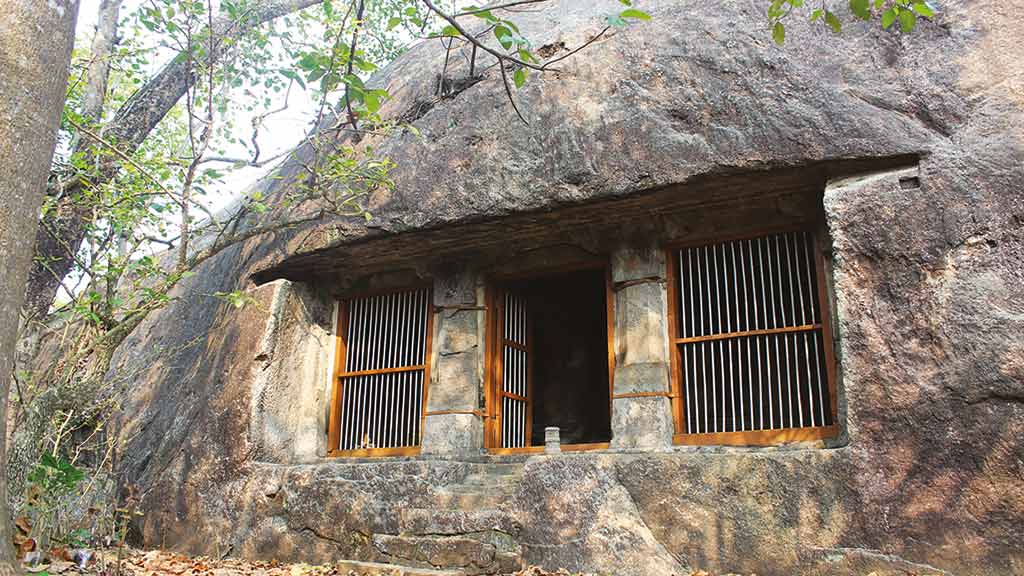
Thrikkakkudy cave temple dedicated to Lord Siva is one of the oldest cave temples of Kerala. The entire construction resembles the Pallava art tradition and it is believed to have belonged to the latter half of the 8th century. This cave temple facing the west comprises of a central shrine with a Sivalinga, an Ardhamandapa and a pillared facade. The cave is 19 feet 8 inches wide and 8 feet 6 inches high. Two pillars of 8 feet 8 inches in height gave out three cave openings of which two caves are of 5 feet in width and the other is that of 4 feet 8 inches. A cylindrical rock cut Siva linga is enshrined in the central shrine. The rectangular hall in front of the sanctum measures 19 feet 8 inches by 5 feet. Inside the square-shaped garbhagriha Sivalinga is mounted on rectangular Peeda. On the north and south walls of the Ardhamandapa there engraved figures like Chathurbhuja Ganapathy and a born sage respectively. Among the two Dwarapalaka figures one is of a local chieftain and the other carrying a 'gada.' It was declared as protected monument in 1965.
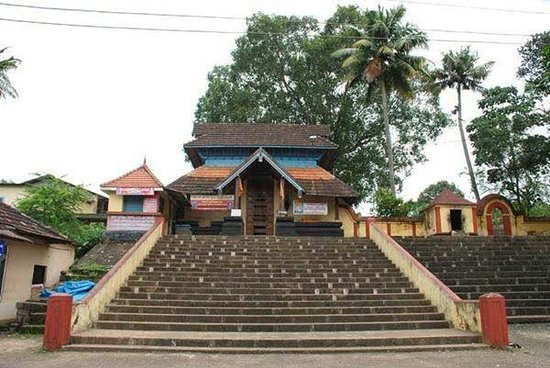
An ancient temple of immense historical value, Thrikkaviyoor Mahadeva Temple or Kaviyoor Mahadeva Temple is preserved as a monument by the Archaeological Department. On the banks of the river Manimala is the Kaviyoor region, famous for its temples, where this iconic shrine is situated. Historians date this temple to a period as early as the eighth century AD due to its resemblance to the Pallava style of architecture. The engravings here feature among the earliest specimens of stone sculptures in Kerala. The main deity of the temple is Lord Shiva, represented in the 'Shivalinga' which is about three feet high and carved out of rock, enshrined in a square cave. Idols of Ganapathy, Maharshi and Dwarapalakas can also be found in the temple premises.
Njaliyil Bhagavathy Temple is dedicated to Bhagawathy who is actually Bhadrakali, at Njalikandam province of Kaviyoor, about a km east of the main Shiva temple. An old temple formerly owned by Naithallur Illam (immigrants from Kodungalloor; see 'History'), it is now managed by the public. The goddess was originally enshrined in the illam, but was shifted to the present site later. The locals believe that once upon a time the head of the illam used to go on an annual pilgrimage to Kodungallor and when he became too old to travel the goddess offered to settle in his illam. The shrine was shifted as the goddess apparently became more powerful to be housed in a family shrine. In the month of Makaram (January)'Ashwathy' festival is conducted. The festival's name comes from "Aswathy", the first of the 27 birth stars in Malayalam astrology. Eye-catching Thaalapoli (താലപ്പൊലി), a procession of young women carrying lamps/wicks and grain in well-adorned trays for appeasing the deity is an important annual function. And Noottiyonnu Kalam, offering of 101 earthen pots filled with grains etc. (നൂറ്റൊന്നു കലം, like Pongala) and Annadaanam (free mass feast) are the other events (offerings) during festival time. Padayani – this is a combination of music, dance, painting, satire etc. reflecting the ancient socialist society before Aryanization and advent of four caste system – is the colourful annual event extolling Bhadrakali for the murder of Daarika, a demon.
Kaviyoor is situated 5km east from Thiruvalla in Pathanamthitta district. Located near by the river Manimala. Kaviyoor is famous for its temples, Kaviyoor Hanuman Temple, Trikkaviyoor Mahadeva Temple, Kaviyoor Thrikkakkudi Cave Temple, Maha Vishnu Temple, Kuruthykamankavu Devi Temple ,Thiruvamanapuram Maha Vishnu Temple, Njaliyil Bhagavathy Temple, Sastha Kshethram Padinjattucherry , Ganapathy Temple Pattambalam , Parappuzha Maha Vishnu Temple etc..... Till the formation of Pathanamthitta dictrict Kaviyoor village was part of Alappuzha district and village established on 1/11/1982.Foundation stone of new building laid on 25/02/1986. Total area of village is 1340.8853 hectares. The Kaviyoor villages comes under Thiruvalla assembly legislative & Pathanamthitta Parliamentary constituency. It is 8 km away from Taluk headquarters in the North East direction. River Manimala is flowing through the Southern boundary of this village. Eastern boundary of this village is Kallooppara village and River Manmala . North and West boundaries of this village are Kunnamthanam, & Kuttappuzha respectively. The Govt.Ayurveda hospital is situated near the village.
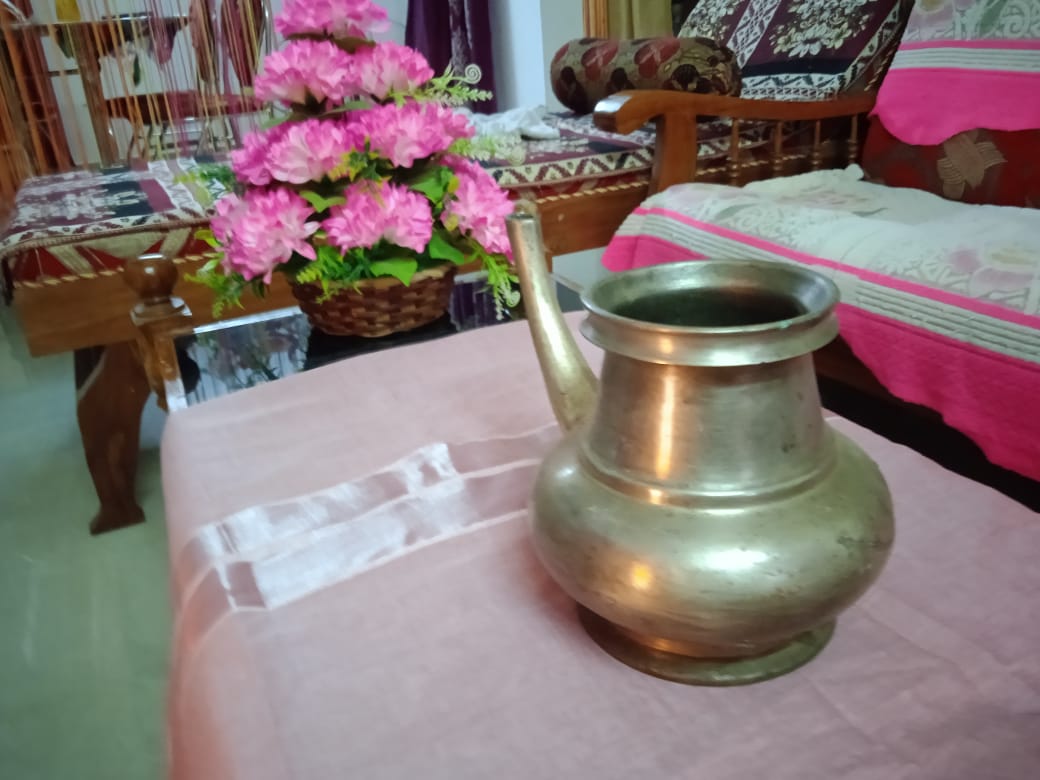 Thrikkaviyoor Velladu Kindi for his sepcial construction of the Mushari sect of vishwakarmajar brought by the maharaja of the travancore with the construction of the thrikkaviyoor mahadeva temple . the brilliance of the goat is an extraordinary special combination for its construction. the De- combination between the tail and the body of the kindi is not found in the Thrikkaviyoor Vellad Kindi.
Thrikkaviyoor Velladu Kindi for his sepcial construction of the Mushari sect of vishwakarmajar brought by the maharaja of the travancore with the construction of the thrikkaviyoor mahadeva temple . the brilliance of the goat is an extraordinary special combination for its construction. the De- combination between the tail and the body of the kindi is not found in the Thrikkaviyoor Vellad Kindi.
The Christian community in Kaviyoor belong to the various Christian denominations like CSI, Marthoma, Orthodox, Catholic and Pentecostals. Marthoma Churches in Kaviyoor There are five Marthoma Churches are there in Kaviyoor Marthoma Valiyapally kaviyoor, (Padinjattumcheri) Kaviyoor Njalbhagom Sleeba Mar Thoma Church, (Njalbhagom) Kaviyoor Salem Marthoma Church St.Pauls Mar Thoma Church, Kaviyoor (Kaniampara) Immanuel Mar Thoma Church, Kottoor
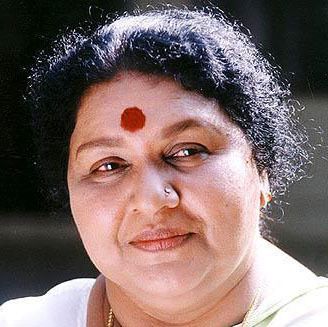 Kaviyoor Ponnamma is an Indian film actress who appears in Malayalam films and television. She began her career performing in theatre dramas before foraying into cinema. She has also acted in TV serials and commercials and has playback singing credits in few films. Ponnamma is a four-time Kerala State Film Award for Second Best Actress winner. Her sister Kaviyoor Renuka was also an actress. Often called as the Mother to all actors, she has acted as mother of almost all actors in her career panning over decades. At the age of 20, she played the mother of Sathyan and Madhu in the 1965 movie Thommente Makkal.As a five-year-old, she learned music and used to sing in stage shows.She started acting in dramas when she was 14 years old, starting off with Mooladhanam of Thoppil Bhasi. After five years, came her first movie Kudumbini, in which she did the title role of the mother of two kids.She was born to T. P. Damodharan and Gauri, as the eldest of seven children, on 10 September 1945 in Kaviyoor, Thiruvalla. She has six siblings in which Kaviyoor Renuka (d. 2004), her younger sister, was also an actress.
Ponnamma was married to film producer Maniswami in 1969. The couple has a daughter Bindhu who is married and settled at United States.Her husband Maniswami died in 2011. Awards - Kerala State Film Awards,Second Best Actress – 1971 – Different films, Second Best Actress – 1972 – Theertha Yathra, Second Best Actress – 1973 – Different films, Second Best Actress – 1994 – Thenmavin Kombathu, Film City Magazine- Chalachitra Ratnam' Title - 2006, Pappanamkode Lakshmanan Award - 2006, O Madhavan Award - 2009, Bharath Murali Award - 2012,
Kala Ratna award - EV Kala Mandalam - 2013,
PK Rosy Award - 2015, Good Knight Film and Business Awards - 2017, Gurupranam - Honour by Malayalam Cine Technicians’ Association (MACTA) - 2013, Honour by KSFDC - 2015, Honour by Kerala State Film Awards - 2016, Felicitation by Kerala State Film Awards - 2017, Kausalya Vandanam programme Honour - 2017, Kalaiselvam Award - Government of Tamil Nadu, Honour by Kaviyoor Panchayat, DLSA Honour
Kaviyoor Ponnamma is an Indian film actress who appears in Malayalam films and television. She began her career performing in theatre dramas before foraying into cinema. She has also acted in TV serials and commercials and has playback singing credits in few films. Ponnamma is a four-time Kerala State Film Award for Second Best Actress winner. Her sister Kaviyoor Renuka was also an actress. Often called as the Mother to all actors, she has acted as mother of almost all actors in her career panning over decades. At the age of 20, she played the mother of Sathyan and Madhu in the 1965 movie Thommente Makkal.As a five-year-old, she learned music and used to sing in stage shows.She started acting in dramas when she was 14 years old, starting off with Mooladhanam of Thoppil Bhasi. After five years, came her first movie Kudumbini, in which she did the title role of the mother of two kids.She was born to T. P. Damodharan and Gauri, as the eldest of seven children, on 10 September 1945 in Kaviyoor, Thiruvalla. She has six siblings in which Kaviyoor Renuka (d. 2004), her younger sister, was also an actress.
Ponnamma was married to film producer Maniswami in 1969. The couple has a daughter Bindhu who is married and settled at United States.Her husband Maniswami died in 2011. Awards - Kerala State Film Awards,Second Best Actress – 1971 – Different films, Second Best Actress – 1972 – Theertha Yathra, Second Best Actress – 1973 – Different films, Second Best Actress – 1994 – Thenmavin Kombathu, Film City Magazine- Chalachitra Ratnam' Title - 2006, Pappanamkode Lakshmanan Award - 2006, O Madhavan Award - 2009, Bharath Murali Award - 2012,
Kala Ratna award - EV Kala Mandalam - 2013,
PK Rosy Award - 2015, Good Knight Film and Business Awards - 2017, Gurupranam - Honour by Malayalam Cine Technicians’ Association (MACTA) - 2013, Honour by KSFDC - 2015, Honour by Kerala State Film Awards - 2016, Felicitation by Kerala State Film Awards - 2017, Kausalya Vandanam programme Honour - 2017, Kalaiselvam Award - Government of Tamil Nadu, Honour by Kaviyoor Panchayat, DLSA Honour
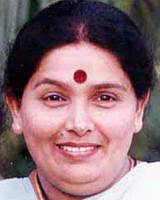 Renuka is an Indian television and film actress who is known for playing the lead role Premi in K. Balachander's Tamil tele-serial of the same name. She has also acted many Malayalam and some Hindi films. Renuka's family hailed from the town of Srirangam. Due to adverse circumstances caused by the early death of her father, she was compelled to move to the city of Chennai at an early age in search of work. In a short while, she was able to get a job as a drama artiste with Komal Swaminathan's troupe. She got the break in Tamil films with the 1989 movie Samsara Sangeetham directed by T. Rajender and in the year 1990, she worked in Malayalam movie Kuttettan. Renuka has worked in a few Tamil films and about 75 Malayalam movies, after she was introduced to Tamil film director K. Balachander by colleague Geetha.
Renuka was cast in a supporting role in the teleserial Kaialavu Manasu directed by Balachander. Following Kaialavu Manasu, Renuka also did a supporting role in Kadhal Pagadai, which made her very popular and lead roles in Premi, Jannal and Ganga Yamuna Saraswati. She also earned good reviews for her performance in Premi. Renuka is the eldest daughter in the family and has two younger brothers. In 1998, she married Aloha Kumaran, the Chairman and Managing Director of Aloha India.
Renuka is an Indian television and film actress who is known for playing the lead role Premi in K. Balachander's Tamil tele-serial of the same name. She has also acted many Malayalam and some Hindi films. Renuka's family hailed from the town of Srirangam. Due to adverse circumstances caused by the early death of her father, she was compelled to move to the city of Chennai at an early age in search of work. In a short while, she was able to get a job as a drama artiste with Komal Swaminathan's troupe. She got the break in Tamil films with the 1989 movie Samsara Sangeetham directed by T. Rajender and in the year 1990, she worked in Malayalam movie Kuttettan. Renuka has worked in a few Tamil films and about 75 Malayalam movies, after she was introduced to Tamil film director K. Balachander by colleague Geetha.
Renuka was cast in a supporting role in the teleserial Kaialavu Manasu directed by Balachander. Following Kaialavu Manasu, Renuka also did a supporting role in Kadhal Pagadai, which made her very popular and lead roles in Premi, Jannal and Ganga Yamuna Saraswati. She also earned good reviews for her performance in Premi. Renuka is the eldest daughter in the family and has two younger brothers. In 1998, she married Aloha Kumaran, the Chairman and Managing Director of Aloha India.
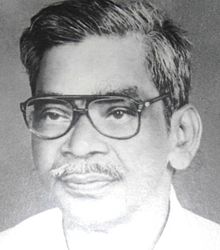 Kaviyoor Murali (20 March 1931 – 20 October 2001) was an Indian dalit activist, writer and Folklore Research Person from Kerala state. Murali was born on 20 March 1931 in Kaviyoor, Tiruvalla, Pathanamthitta District, Kerala. He was an Ambedkarite activist. Familiar among all Dalit Activists and Folklore Groups. He studied at Kaviyoor N.S.S. English High School, Thiruvananthapuram Intermediate College and Thiruvalla Mar Thoma College.
In 1953, he was a Full Member and a Full Time worker of Communist Party. Participated actively in the strike to avail trade union rights for the State Transport Workers in 1954. Undergone brutal torture by the police, after arrest and imprisonment. Started career as a teacher. Later, retired as a Superintendent in Public Works Department. Honoured with the Fellowship of Bharatiya Dalit Sahithya Academy, New Delhi. An honorary photograph was unveiled in the Kerala Sahithya Akademy Hall in 2003.
Prominent works
1. Vayalchullikal (Field shrubs)- Collection of poems.
2. Darsanam (Vision)- collection of poems.
3. Dalitharkkezhuthiya Suvishesham (Gospel to the Dalits)
4. Purananooru- Oru Padhanam (Purananooru- a study)[1]
5. Dalit Bhasha (Dalit Language)- Study[2]
6. Ayyankalippada (Ayyankali Fighters)- Novel
7. Dalit Sahithyam (Dalit Literature)[3]
8. Dalitbhashalaghunighandu (A dictionary of Dalit Language)- published by DC Books Kottayam
9. Sugandhi- (Novel, unpublished)
10. MunisomKa (Auto-Biography, published by Rainbow Book Publishers, Chengannur)[4]
11. Velutha (Wheatish)- (Poems, unpublished)
12. Njekkuvilakku (Torchlight)- (Essays, Unpublished)
Kaviyoor Murali (20 March 1931 – 20 October 2001) was an Indian dalit activist, writer and Folklore Research Person from Kerala state. Murali was born on 20 March 1931 in Kaviyoor, Tiruvalla, Pathanamthitta District, Kerala. He was an Ambedkarite activist. Familiar among all Dalit Activists and Folklore Groups. He studied at Kaviyoor N.S.S. English High School, Thiruvananthapuram Intermediate College and Thiruvalla Mar Thoma College.
In 1953, he was a Full Member and a Full Time worker of Communist Party. Participated actively in the strike to avail trade union rights for the State Transport Workers in 1954. Undergone brutal torture by the police, after arrest and imprisonment. Started career as a teacher. Later, retired as a Superintendent in Public Works Department. Honoured with the Fellowship of Bharatiya Dalit Sahithya Academy, New Delhi. An honorary photograph was unveiled in the Kerala Sahithya Akademy Hall in 2003.
Prominent works
1. Vayalchullikal (Field shrubs)- Collection of poems.
2. Darsanam (Vision)- collection of poems.
3. Dalitharkkezhuthiya Suvishesham (Gospel to the Dalits)
4. Purananooru- Oru Padhanam (Purananooru- a study)[1]
5. Dalit Bhasha (Dalit Language)- Study[2]
6. Ayyankalippada (Ayyankali Fighters)- Novel
7. Dalit Sahithyam (Dalit Literature)[3]
8. Dalitbhashalaghunighandu (A dictionary of Dalit Language)- published by DC Books Kottayam
9. Sugandhi- (Novel, unpublished)
10. MunisomKa (Auto-Biography, published by Rainbow Book Publishers, Chengannur)[4]
11. Velutha (Wheatish)- (Poems, unpublished)
12. Njekkuvilakku (Torchlight)- (Essays, Unpublished)
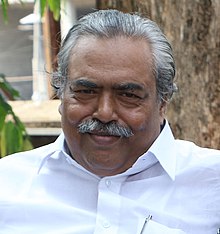 Kaviyoor Sivaprasad is a Malayalam film director, screenwriter and visiting faculty of Malayalam University and SJCC.His son Sidhartha Siva is an actor, director and screenwriter.
Awards,
2016: Chalachithra Prathiba Award by the Kerala Film Critics Association, 2014: CMS VATAVARAN International Environment & Wildlife Film Festival Award for Best Feature Film - Sthalam, National Film Awards, 1994: National Film Award – Special Mention - Ormayude Theerangalil , Kerala State Film Awards
1990: Kerala State Film Award (Special Jury Award) - Vembanad , 2000: Kerala State Film Award for Producer of the Best Documentary - Palathulliperuvallom .
Kaviyoor Sivaprasad is a Malayalam film director, screenwriter and visiting faculty of Malayalam University and SJCC.His son Sidhartha Siva is an actor, director and screenwriter.
Awards,
2016: Chalachithra Prathiba Award by the Kerala Film Critics Association, 2014: CMS VATAVARAN International Environment & Wildlife Film Festival Award for Best Feature Film - Sthalam, National Film Awards, 1994: National Film Award – Special Mention - Ormayude Theerangalil , Kerala State Film Awards
1990: Kerala State Film Award (Special Jury Award) - Vembanad , 2000: Kerala State Film Award for Producer of the Best Documentary - Palathulliperuvallom .
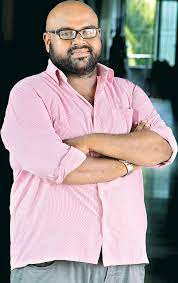 Sidhartha Siva (born 5 May 1985) is an Indian film director, producer, actor, screenwriter and lyricist, who works in Malayalam cinema. His hometown is Kaviyoor in Kerala. He is the son of filmmaker Kaviyoor Sivaprasad. He started his film career by directing telefilms and short films. He then appeared in Malayalam films like Thirakkadha, Ivar Vivahitharayal, Bodyguard, Puthiya Theerangal, Kudumbasree Travels, Artist, Omega.Exe, Rithu, Tejabhaai & Family, Sahasram, Calendar, Sagar Elias Jacky, Radio Jockey, On The Way, Central Theater, Ayaalum Njanum Thammil, Vikramaadhithyan, Love 24 X 7, Kadhantharam , Viswasam Athalle Ellam, Kali, Take Off, Njandukalude Naattil Oridavela, Adam Joan, etc. He won his first National Film Awards at the 60th National Film Awards, he won the Indira Gandhi Award for Best Debut Film of a Director for his film 101 Chodyangal (2012).The film also won the Silver Crow Pheasant Award for Best Feature Film (Audience Prize) at the 18th International Film Festival of Kerala. 101 Chodyangal also won the best feature film award at Noida international film festival. Siva also won the Mohan Raghavan Award for Best Director, 2013. 101 Chodyangalwas also selected in Indian Panorama section at International Film Festival of India 2013. In 2014, his film Zahir was screened at 19th Busan International Film Festival. His film Ain won the best feature film in Malayalam at 62nd National Film Awards.[7][8] Ain also won the prestigious Padmarajan Puraskaram for Best film and Best script. Ain bagged the Kerala State Film Award for best Story in 2014.
Awards
National Film Awards
2013: Indira Gandhi Award for Best Debut Film of a Director - 101 Chodyangal, 2015: Best Feature Film in Malayalam - Ain, Kerala State Film Awards, 2015: Best Story - Ain,
Other awards
2013: Silver Pheasant at the International Film Festival of Kerala - 101 Chodyangal, 2013: Best Film at the Noida International Film Festival - 101 Chodyangal, 2013: Mohan Raghavan Award for Best Director - 101 Chodyangal, 2013: John Abraham Smaraka Puraskaram - 101 Chodyangal, 2014: Best Director - Jury at the Dada Saheb Phalke International Film Festival - Zahir, 2015: Padmarajan Puraskaram- Ain
Sidhartha Siva (born 5 May 1985) is an Indian film director, producer, actor, screenwriter and lyricist, who works in Malayalam cinema. His hometown is Kaviyoor in Kerala. He is the son of filmmaker Kaviyoor Sivaprasad. He started his film career by directing telefilms and short films. He then appeared in Malayalam films like Thirakkadha, Ivar Vivahitharayal, Bodyguard, Puthiya Theerangal, Kudumbasree Travels, Artist, Omega.Exe, Rithu, Tejabhaai & Family, Sahasram, Calendar, Sagar Elias Jacky, Radio Jockey, On The Way, Central Theater, Ayaalum Njanum Thammil, Vikramaadhithyan, Love 24 X 7, Kadhantharam , Viswasam Athalle Ellam, Kali, Take Off, Njandukalude Naattil Oridavela, Adam Joan, etc. He won his first National Film Awards at the 60th National Film Awards, he won the Indira Gandhi Award for Best Debut Film of a Director for his film 101 Chodyangal (2012).The film also won the Silver Crow Pheasant Award for Best Feature Film (Audience Prize) at the 18th International Film Festival of Kerala. 101 Chodyangal also won the best feature film award at Noida international film festival. Siva also won the Mohan Raghavan Award for Best Director, 2013. 101 Chodyangalwas also selected in Indian Panorama section at International Film Festival of India 2013. In 2014, his film Zahir was screened at 19th Busan International Film Festival. His film Ain won the best feature film in Malayalam at 62nd National Film Awards.[7][8] Ain also won the prestigious Padmarajan Puraskaram for Best film and Best script. Ain bagged the Kerala State Film Award for best Story in 2014.
Awards
National Film Awards
2013: Indira Gandhi Award for Best Debut Film of a Director - 101 Chodyangal, 2015: Best Feature Film in Malayalam - Ain, Kerala State Film Awards, 2015: Best Story - Ain,
Other awards
2013: Silver Pheasant at the International Film Festival of Kerala - 101 Chodyangal, 2013: Best Film at the Noida International Film Festival - 101 Chodyangal, 2013: Mohan Raghavan Award for Best Director - 101 Chodyangal, 2013: John Abraham Smaraka Puraskaram - 101 Chodyangal, 2014: Best Director - Jury at the Dada Saheb Phalke International Film Festival - Zahir, 2015: Padmarajan Puraskaram- Ain
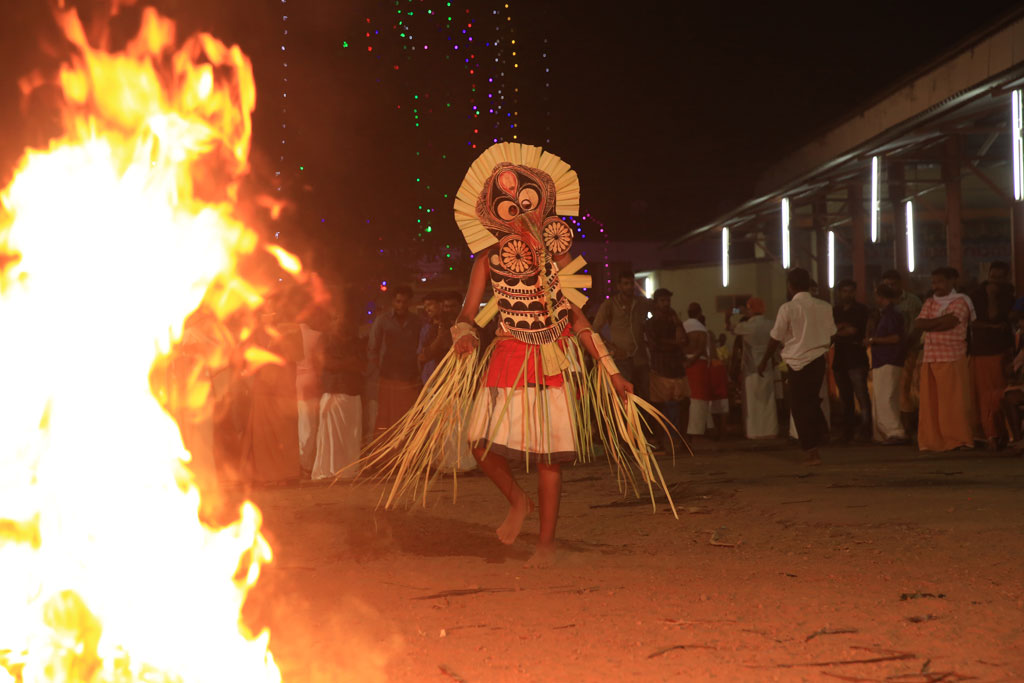 The Padayani the ritual offering to the mother goddess is a burst of colour, energy and passionate devotion. The annual Padayani festival of Njaliyil Sree Bhagavathy Temple at Kaviyoor is celebrated in the Malayalam month of Makaram. The festivities would go on for eight days and ends with Valiya Padayani on Utrattathi asterism.
The rituals of Kaviyoor Padayani begin with ‘Choottu vaipu’ which is followed by the ritual of Ganapathyirakkam. The main attraction of second day is the comic interlude – Vazhipokkan and is followed by another comic interlude Velichappadu on the next day. On fourth day onwards the recital of Thappu begins along with Maddalam and Kaimani. Thavadi also begins on the same day, which is one of the important rituals of Padayani at Njaliyil. The Bhairavi Kolam and Kuthira Kolam are the major attractions of the fifth day festival.
Adavi at Kaviyoor: Adavi is another important ritual of Padayani held on the sixth day. After Pulavritham and Koladi, different kolams appear on stage for performance. The last to come is the Kaalamadan Kolam and is followed by the ritual of Pallippana. Marayadavi, Chooraladavi, Udumbu thullal and Pooppada are the ending rituals of Adavi here.
Edappadayani will be celebrated on the seventh day begins with choottu vaipu is followed by Thappu Melam, Kappoli, Kolam thullal and Thavadi.
The annual mega Padayani festival, Valiya Padayani begins with Thappu Melam and Valiya Kappoli (procession of Kolam). The appearance of the Bhairavi Kolam made of 101 painted areca nut fronds on the last day, is the most impressive of sights during this festival. It is then followed by the performance of Kaalan Kolam. The festival marks an end with the Thavadi of Mangala Kolam.
The Padayani the ritual offering to the mother goddess is a burst of colour, energy and passionate devotion. The annual Padayani festival of Njaliyil Sree Bhagavathy Temple at Kaviyoor is celebrated in the Malayalam month of Makaram. The festivities would go on for eight days and ends with Valiya Padayani on Utrattathi asterism.
The rituals of Kaviyoor Padayani begin with ‘Choottu vaipu’ which is followed by the ritual of Ganapathyirakkam. The main attraction of second day is the comic interlude – Vazhipokkan and is followed by another comic interlude Velichappadu on the next day. On fourth day onwards the recital of Thappu begins along with Maddalam and Kaimani. Thavadi also begins on the same day, which is one of the important rituals of Padayani at Njaliyil. The Bhairavi Kolam and Kuthira Kolam are the major attractions of the fifth day festival.
Adavi at Kaviyoor: Adavi is another important ritual of Padayani held on the sixth day. After Pulavritham and Koladi, different kolams appear on stage for performance. The last to come is the Kaalamadan Kolam and is followed by the ritual of Pallippana. Marayadavi, Chooraladavi, Udumbu thullal and Pooppada are the ending rituals of Adavi here.
Edappadayani will be celebrated on the seventh day begins with choottu vaipu is followed by Thappu Melam, Kappoli, Kolam thullal and Thavadi.
The annual mega Padayani festival, Valiya Padayani begins with Thappu Melam and Valiya Kappoli (procession of Kolam). The appearance of the Bhairavi Kolam made of 101 painted areca nut fronds on the last day, is the most impressive of sights during this festival. It is then followed by the performance of Kaalan Kolam. The festival marks an end with the Thavadi of Mangala Kolam.